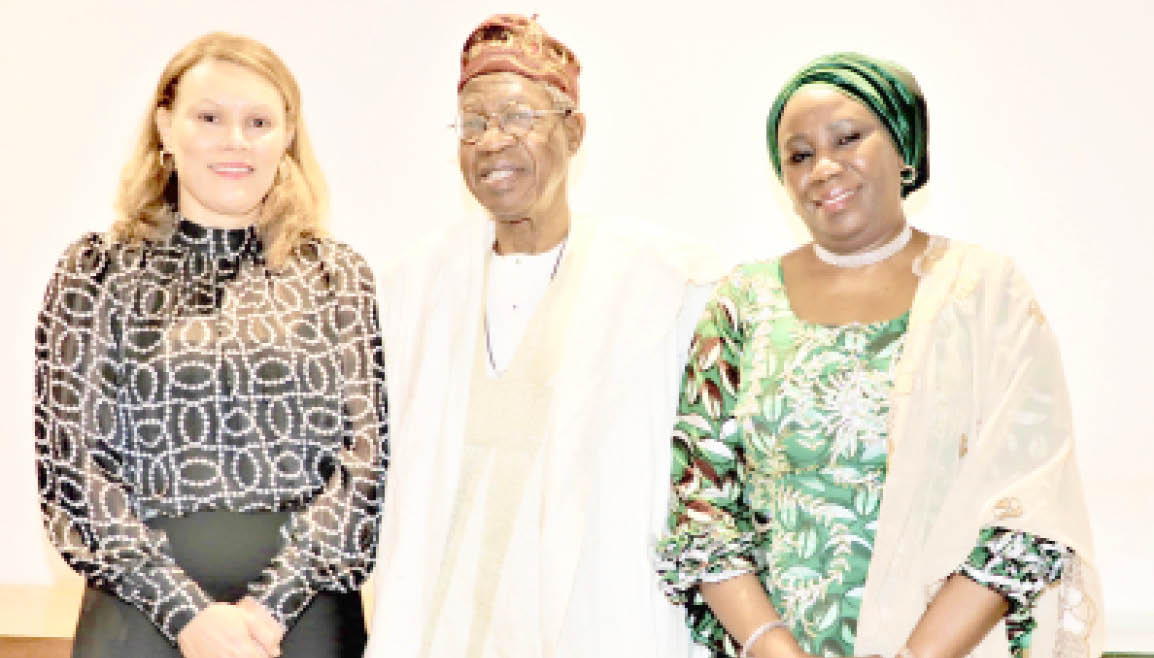166 countries to attend the UN World Tourism Organisation conference in Lagos
Delegates from 166 member countries of the United Nations (UN) World Tourism Organisation (UNWTO) are billed to participate in its 2022 conference scheduled to hold in Lagos between November 14 and 16. The Minister of Information and Culture, Alhaji Lai Mohammed, made this known on Saturday in Lagos. Osinbajo to focus on governance as Buhari […]

L-R: United Nations World Tourism Organization (UNWTO) Regional Director for Africa, Elcia Grandcourt; Minister of Information and Culture, Alhaji Lai Mohammed and the Permanent Secretary, Federal Ministry of Information and Culture, Mrs Lydia Shehu Jafiya (mni) at a press conference on the forthcoming UNWTO Global Conference in Nigeria in Lagos yesterday Photo: Felix Onigbinde
Delegates from 166 member countries of the United Nations (UN) World Tourism Organisation (UNWTO) are billed to participate in its 2022 conference scheduled to hold in Lagos between November 14 and 16.
The Minister of Information and Culture, Alhaji Lai Mohammed, made this known on Saturday in Lagos.
Osinbajo to focus on governance as Buhari chairs 422-member APC presidential campaign council
3 days to flag-off: Atiku, Tinubu, Obi, Kwankwaso campaigns to guzzle billions
National tourism and culture organisations, international organisations, destination management organisations and stakeholders from the public and private sectors are expected at the conference.
Also expected to participate are civil society organisations working on tourism, cultural and creative industries and the media.
Mohammed told a news conference that delegates would include the UNWTO top executives, officials and experts led by the secretary-general, ministers and officials of tourism, culture and arts ministries of member states.
There would be two parallel experts’ workshops, a seminar on tourism and the creative industry and a conference on linking tourism, culture and the creative industry.
The minister noted that there would also be exhibitions on gastronomy, fashion, movie, music, visual arts and more, as well as a special programme on the creative industry tagged “A Day with Nollywood.’’
“According to the UNWTO, tourism is an activity in which the visitors’ essential motivation is to learn, discover, experience and consume the tangible and intangible attractions and products in a destination.
“It has positive socio-economic impact, preserves cultural, historical heritage and facilitates harmony and understanding among people.
“The organisation described the creative industry, which includes advertising, architecture, arts and crafts, design, film, video, photography, music, performing arts, and publishing, as the lifeblood of the creative economy.
“It says it is also a growth driver for sustainable development,’’ the minister said. (NAN)
